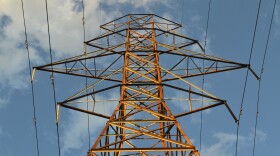Critics say DTE Energy's "Natural Gas Balance" carbon offset program is a marketing ploy rather than a genuine way to reduce carbon emissions.
But the utility defends the pilot project as one of many ways it's reducing carbon emissions.
Enrolled DTE customers can pay an extra $4 to $16 a month to offset part or all of the carbon they emit by burning natural gas in their homes.
The utility program says it uses the fees to "protect forests across the Upper Peninsula," by purchasing carbon offset credits in state-run forests, and also investing in renewable natural gas, which means harvesting methane from landfills.
DTE says the program limits aggressive tree harvesting throughout Michigan, including 100,000 acres of the Pigeon River Country State Forest.
Meanwhile, the Michigan DNR, which manages the state forest, says the money from the credits supports its climate mitigation fund, but does not "appreciably affect" its forest management practices or timber harvest levels.
Tim Minotas is with the Michigan Chapter of the Sierra Club. He said the program appears to be primarily a marketing ploy that helps the utility's image, and customers are paying for it.
"They're taking advantage of customers that actually care about the environment and creating this illusion that they're doing something really good, when in fact it's just DTE raking in a profit for business as usual," he said.
But DTE Energy said third party groups monitor the program to make sure the credits reflect real world reductions in carbon emissions.
DTE Energy has asked the Michigan Public Service Commission to extend the pilot project for another three years. That's despite losing more than a million dollars on the program in 2022, as described in its March 2023 report to the Commission, primarily due to marketing expenses.
"While total enrollments were as expected, the average
participation level was lower than modeled, causing us to seek additional time in the pilot phase," the utility said in its report.
It said it would continue experimenting with marketing and sales tactics in that time, as well as evaluating program performance and customers' sentiments.
Consumers Energy also has a voluntary natural gas credit offset program, called "MI Clean Air," but it's a dramatically smaller program than DTE Energy's pilot project. In its report to the MPSC, the utility said revenues from customer enrollment totaled $20,657 in 2022, while marketing expenses were $97,702.
In a statement, Consumers Energy said it plans to achieve net zero greenhouse gas emissions from its entire natural gas system — including customers and suppliers — by 2050.
"Consumers Energy doesn’t suggest that our MI Clean Air program is the entire solution, but it does provide a meaningful contribution to our plan. Our forestry offsets support a Michigan-based project and are certified to the highest standards by the American Carbon Registry."
Editor's Note: DTE Energy and Consumers Energy are among Michigan Public's corporate sponsors.





